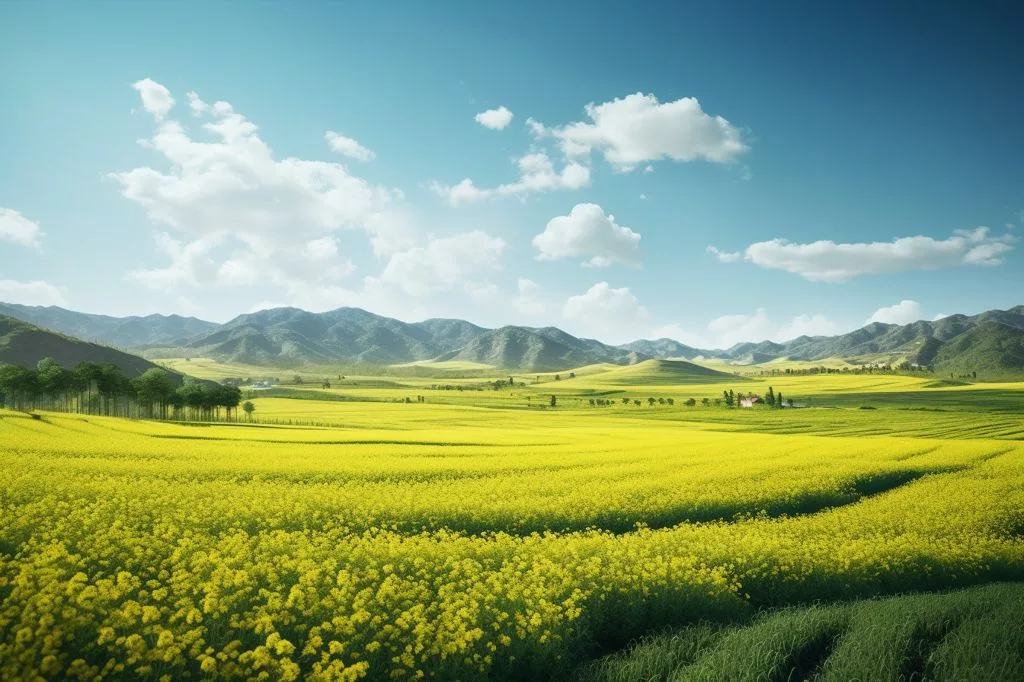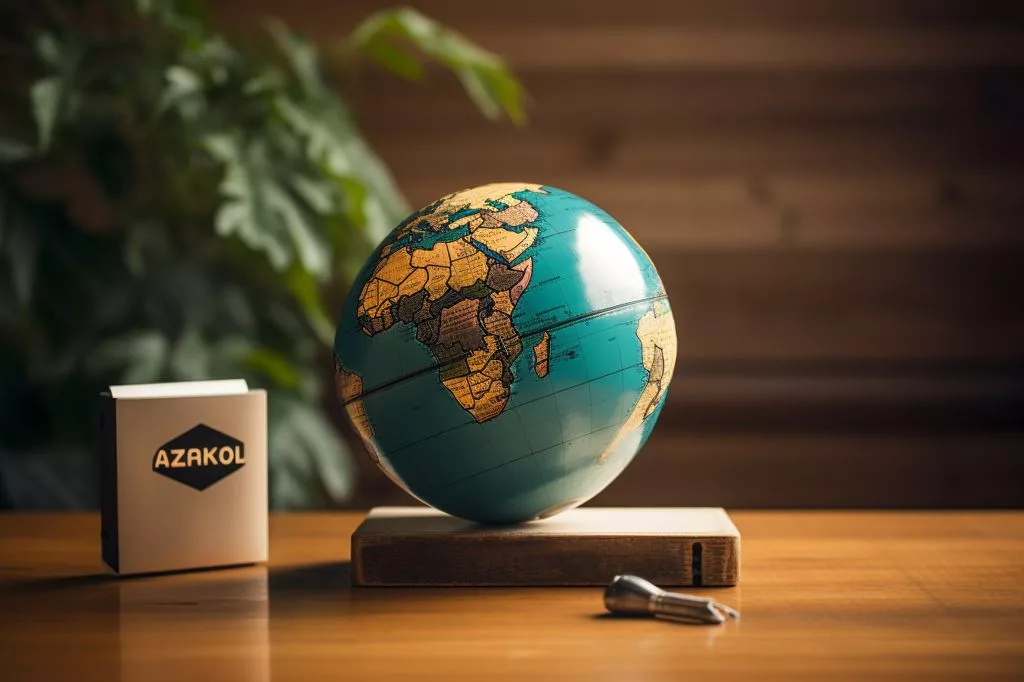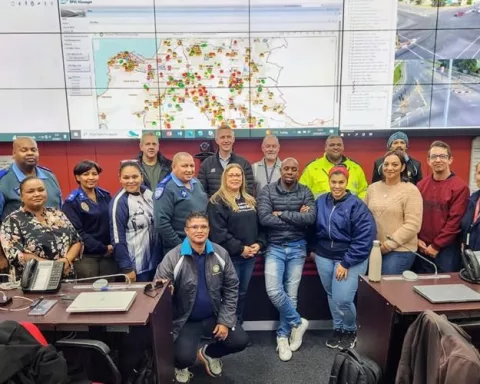The Department of Rural Development and Agrarian Reform in South Africa is investing R102 million to enhance grain production and boost agricultural development in Ngcobo. The initiative aims to expand hectarage and farm revenue by commercializing grain cultivation, benefiting up-and-coming and small-scale producers. Signs of agricultural advancement are already evident, with grain production increasing by over 100% from 2018 to 2022. The department’s investment and support are empowering farming communities and promoting a more prosperous and sustainable future for the Eastern Cape’s farmers.
What is the Department of Rural Development and Agrarian Reform doing to foster agricultural development in Ngcobo?
The Department of Rural Development and Agrarian Reform (DRDAR) in Eastern Cape, South Africa, is investing R102 million in grain production to augment investments in both commercial and communal grain production throughout the province. This initiative seeks to bolster up-and-coming and small-scale producers by expanding hectarage and farm revenue by commercializing grain cultivation. Signs of agricultural advancement in the province are already apparent, with grain production increasing by over 100% from 2018 to 2022.
Aiming for Agricultural Growth
The Department of Rural Development and Agrarian Reform (DRDAR) in Eastern Cape, South Africa, made a significant move to foster agricultural development and stable income for farmers by inaugurating the grain planting season at the Dalasile Agri Park in Ngcobo. Led by MEC Nonkqubela Pieters, this initiative seeks to augment investments in both commercial and communal grain production throughout the province.
Displaying a strong dedication to agriculture, the DRDAR has earmarked R102 million for grain production spanning 27,774 hectares of land. More than 9,000 small-scale and subsistence farmers in the grain corridor, including Alfred Nzo, Amathole, Joe Gqabi, Chris Hani, and OR Tambo districts, are poised to gain from this funding.
The backing for grain cultivators involves a range of resources, such as seeds, chemicals, machinery for land cultivation, and commercial alliances. With the Eastern Cape’s commercial grain production currently contributing a mere 1%, the department is striving to bolster up-and-coming and small-scale producers. The primary objective is to expand hectarage and farm revenue by commercializing grain cultivation.
Progress in Provincial Agriculture
Signs of agricultural advancement in the province are already apparent. From 2018 to 2022, grain production increased by over 100%—rising from 93,200 tons in 2018 to 198,650 tons. This considerable growth was propelled by area expansion from 14,500 hectares to 26,000 hectares, with crop yields also demonstrating a consistent upward trend during this timeframe.
In the current fiscal year, the provision of production resources, such as seeds and chemicals, has been finalized in Alfred Nzo, Amathole, Chris Hani, and OR Tambo. Farmers in the Joe Gqabi District will receive support through machinery, as they prefer to acquire their own production materials.
As an element of this year’s grain production scheme, the DRDAR will join forces with the Dalasile Agri-park to cultivate grain on over 2,000 hectares of land in the Dr. AB Xuma Local Municipality. The farmers involved in this project grow a variety of crops, including yellow maize, white maize, oats, soybeans, and sorghum, catering to diverse markets such as households, animal feed manufacturers, and food production enterprises. As a result, farmers are set to generate greater income for their households and businesses.
Supporting and Elevating Farming Communities
This agricultural endeavor reflects the wider objectives of the DRDAR in aiding and uplifting the Eastern Cape’s agricultural communities. By investing in grain cultivation and supplying resources and partnerships, the department is empowering farmers to capitalize on the increasing market demand for their crops. Furthermore, by fostering emerging and small-scale producers, the DRDAR aims to drive the province’s agricultural sector toward self-reliance and commercial triumph.
The initiation of the grain planting season at the Dalasile Agri Park is a testament to the positive influence that governmental investment and cooperation can have on rural areas. By concentrating on enhancing grain production, the DRDAR is not only contributing to the region’s economic development but also promoting a more prosperous and sustainable future for the Eastern Cape’s farmers.
Looking Forward to a Brighter Future
While this initiative signifies a substantial stride toward fostering agricultural growth in the area, the journey is far from complete. Ongoing investment, support, and collaboration will be crucial to guarantee that the Eastern Cape’s farming communities flourish in the coming years. As the grain planting season progresses, it will be intriguing to observe the accomplishments of the farmers and the impact of the DRDAR’s continuous efforts.
With the support of the DRDAR and the unwavering commitment of local farmers, the grain planting season in Ngcobo is set to be a turning point in the Eastern Cape’s agricultural narrative. The future seems promising for the province as it moves forward on the road to prosperity, self-sufficiency, and commercial success within the agricultural sector.
1. What is the Department of Rural Development and Agrarian Reform doing to foster agricultural development in Ngcobo?
The Department of Rural Development and Agrarian Reform (DRDAR) in Eastern Cape, South Africa, is investing R102 million in grain production to augment investments in both commercial and communal grain production throughout the province. This initiative seeks to bolster up-and-coming and small-scale producers by expanding hectarage and farm revenue by commercializing grain cultivation.
2. How much money is the DRDAR investing in grain production in Ngcobo?
The DRDAR is investing R102 million in grain production to boost agricultural development in Ngcobo.
3. Who will benefit from the DRDAR’s investment in grain production?
More than 9,000 small-scale and subsistence farmers in the grain corridor, including Alfred Nzo, Amathole, Joe Gqabi, Chris Hani, and OR Tambo districts, are poised to gain from this funding.
4. What resources will the DRDAR provide to grain cultivators?
The backing for grain cultivators involves a range of resources, such as seeds, chemicals, machinery for land cultivation, and commercial alliances.
5. How much has grain production increased from 2018 to 2022 in the Eastern Cape?
Grain production increased by over 100% from 2018 to 2022, rising from 93,200 tons in 2018 to 198,650 tons.
6. What crops do farmers involved in the Dalasile Agri-park project grow?
Farmers involved in the Dalasile Agri-park project grow a variety of crops, including yellow maize, white maize, oats, soybeans, and sorghum, catering to diverse markets such as households, animal feed manufacturers, and food production enterprises.
7. How does the DRDAR aim to drive the province’s agricultural sector toward self-reliance and commercial triumph?
By fostering emerging and small-scale producers, the DRDAR aims to drive the province’s agricultural sector toward self-reliance and commercial triumph.
8. What is the DRDAR’s wider objective for aiding and uplifting the Eastern Cape’s agricultural communities?
The DRDAR’s wider objective for aiding and uplifting the Eastern Cape’s agricultural communities is to promote a more prosperous and sustainable future for the farmers in the region.








